Abstract
The tissue accumulation of sucrose, glucose, and fructose has been studied in cultured cotton (Gossypium hirsutum L.) roots and leaf discs. Sucrose uptake by both tissues from high apoplastic concentrations was independent of pH but has a slightly acidic pH optimum from low concentrations. Like other higher plant tissues, cotton root cells accumulate sucrose via a `saturable,' inhibitor-sensitive mechanism and a linear, inhibitor-resistant mechanism. The linear mechanism of sucrose uptake is not as pronounced in leaf disc data as it is in root data. Further, sucrose uptake by cotton leaf discs is more resistant than uptake by root cells to pH alterations, inhibitors, and monosaccharides in the uptake medium. The saturable phase of sucrose influx into cotton root is eliminated by glucose, fructose, and high pH. Sucrose influx into both tissues is not altered by osmotica up to 200 milliOsmolar. Sucrose accumulated by both tissues is rapidly converted to other chemical forms, especially in root tissue where only approximately 50% remains as neutral sugars 1 hour following the start of radiolable exposure. Although the entry of radiolabeled sucrose is faster in abraded leaf discs, they give the same response patterns to pH, inhibitors, and monosaccharide as do unabraded discs.
The sucrose accumulation kinetics of cotton roots and leaf discs differ. These differences may be related to the physiological roles (source versus sink) of the two tissues in the intact plant.
Full text
PDF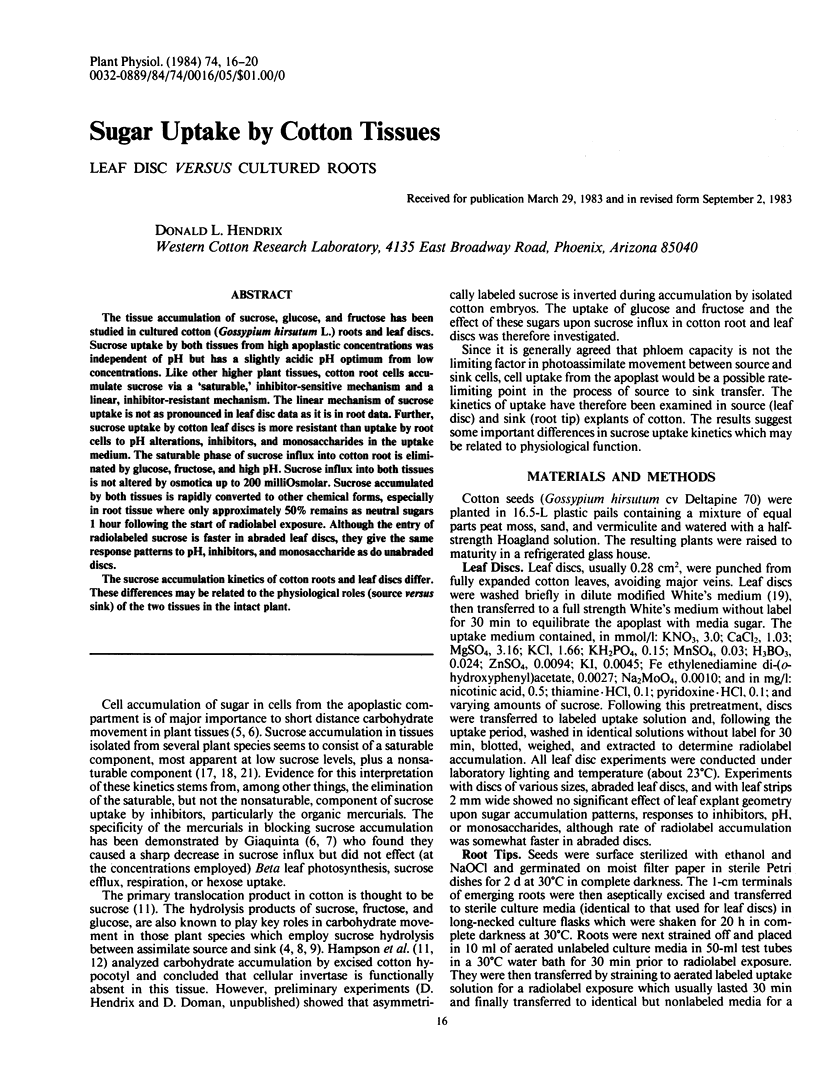
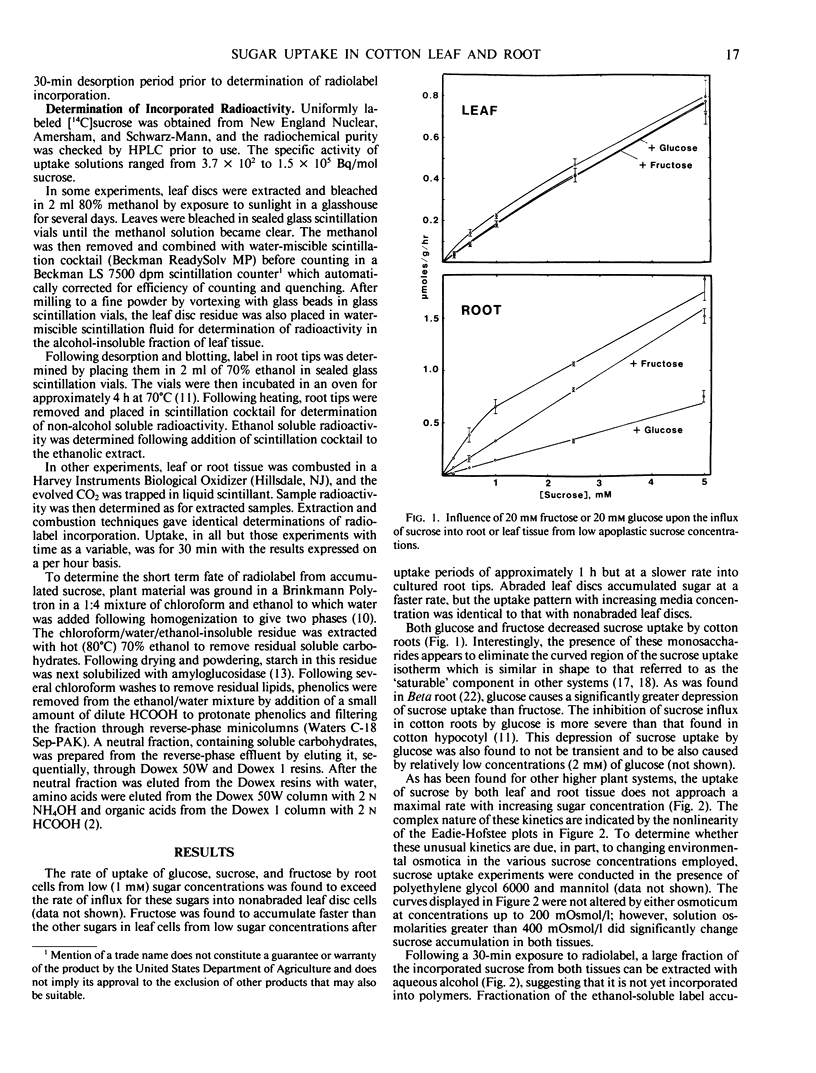
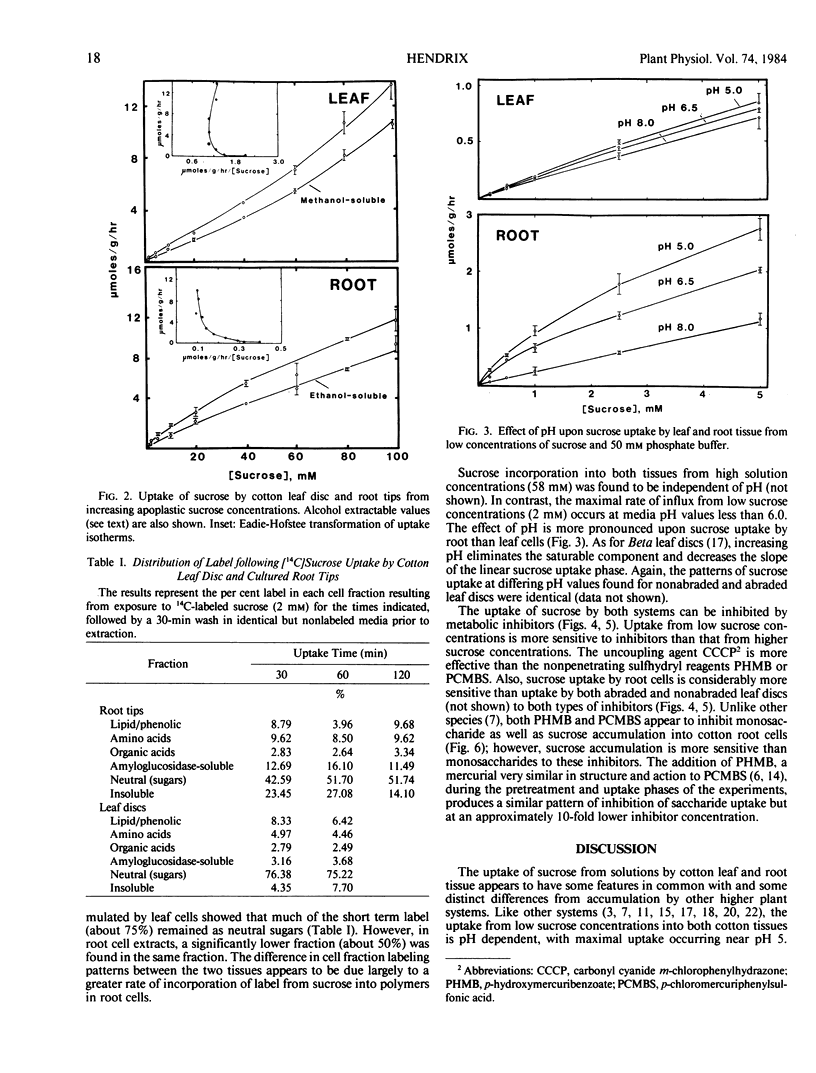
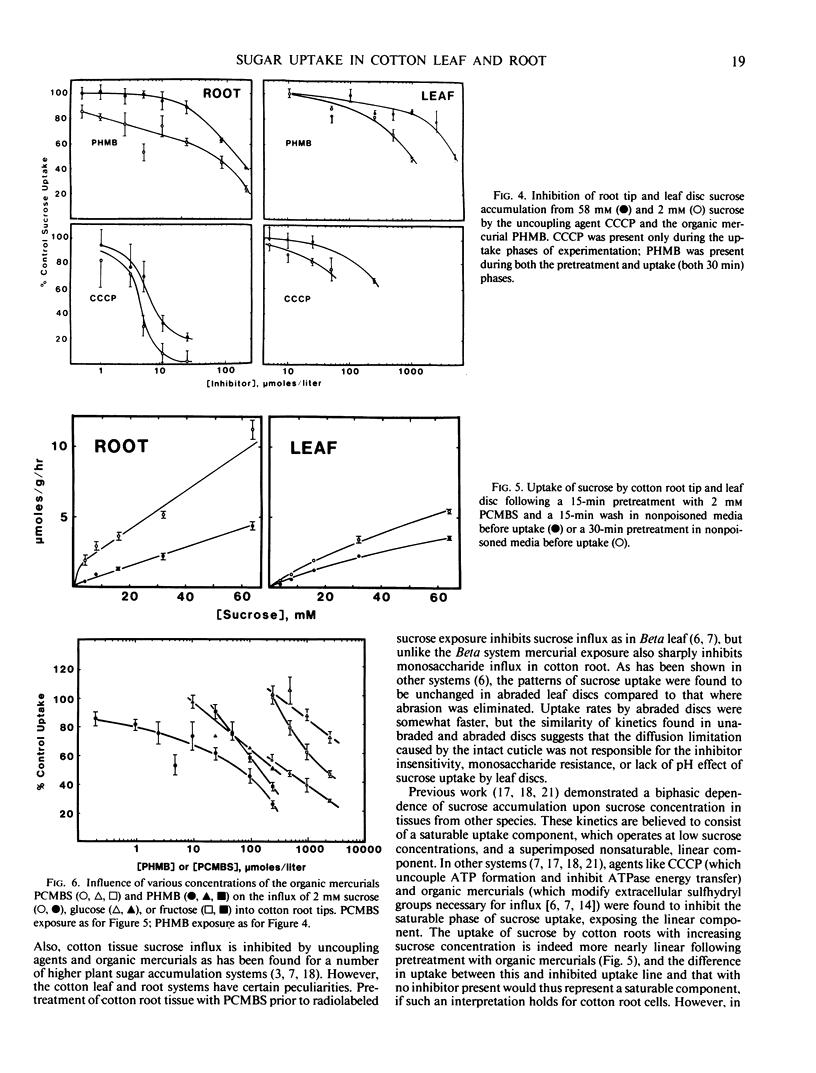
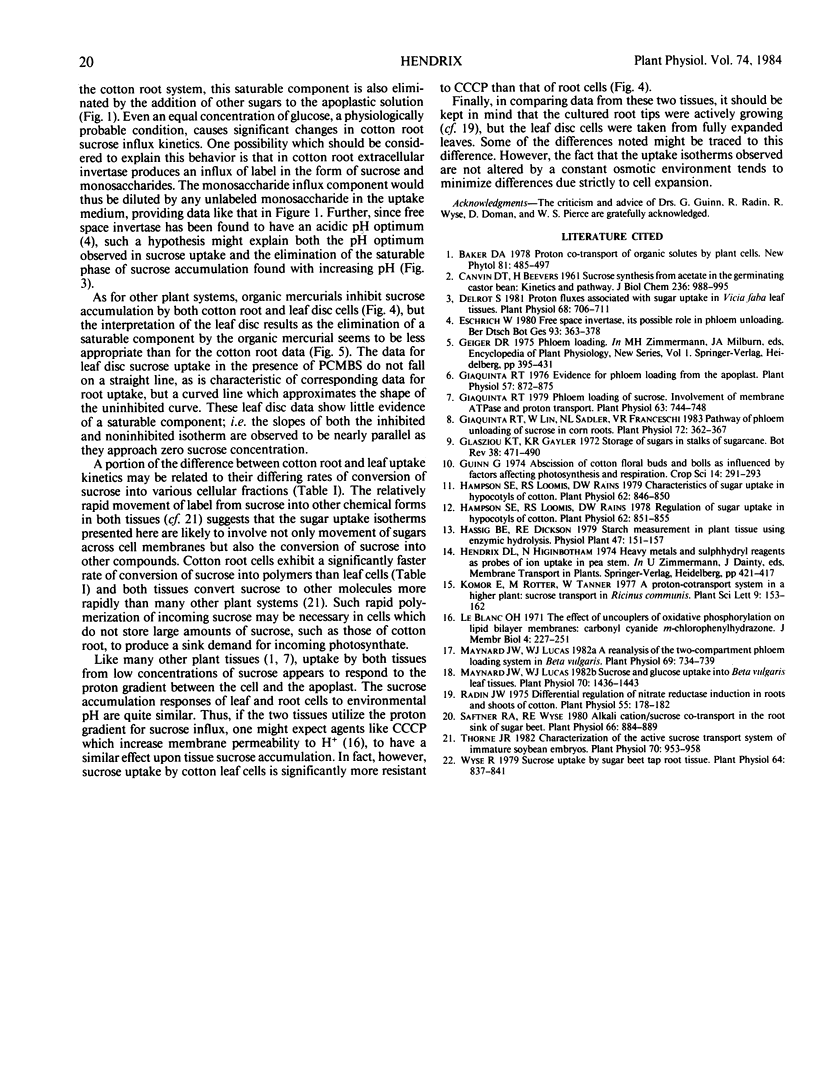
Selected References
These references are in PubMed. This may not be the complete list of references from this article.
- CANVIN D. T., BEEVERS H. Sucrose synthesis from acetate in the germinating castor bean: kinetics and pathway. J Biol Chem. 1961 Apr;236:988–995. [PubMed] [Google Scholar]
- Delrot S. Proton Fluxes Associated with Sugar Uptake in Vicia faba Leaf Tissues. Plant Physiol. 1981 Sep;68(3):706–711. doi: 10.1104/pp.68.3.706. [DOI] [PMC free article] [PubMed] [Google Scholar]
- Giaquinta R. T., Lin W., Sadler N. L., Franceschi V. R. Pathway of Phloem unloading of sucrose in corn roots. Plant Physiol. 1983 Jun;72(2):362–367. doi: 10.1104/pp.72.2.362. [DOI] [PMC free article] [PubMed] [Google Scholar]
- Giaquinta R. T. Phloem loading of sucrose: involvement of membrane ATPase and proton transport. Plant Physiol. 1979 Apr;63(4):744–748. doi: 10.1104/pp.63.4.744. [DOI] [PMC free article] [PubMed] [Google Scholar]
- Giaquinta R. Evidence for Phloem loading from the apoplast: chemical modification of membrane sulfhydryl groups. Plant Physiol. 1976 Jun;57(6):872–875. doi: 10.1104/pp.57.6.872. [DOI] [PMC free article] [PubMed] [Google Scholar]
- Hampson S. E., Loomis R. S., Rains D. W. Characteristics of sugar uptake in hypocotyls of cotton. Plant Physiol. 1978 Dec;62(6):846–850. doi: 10.1104/pp.62.6.846. [DOI] [PMC free article] [PubMed] [Google Scholar]
- Hampson S. E., Loomis R. S., Rains D. W. Regulation of sugar uptake in hypocotyls of cotton. Plant Physiol. 1978 Dec;62(6):851–855. doi: 10.1104/pp.62.6.851. [DOI] [PMC free article] [PubMed] [Google Scholar]
- Radin J. W. Differential regulation of nitrate reductase induction in roots and shoots of cotton plants. Plant Physiol. 1975 Feb;55(2):178–182. doi: 10.1104/pp.55.2.178. [DOI] [PMC free article] [PubMed] [Google Scholar]
- Saftner R. A., Wyse R. E. Alkali Cation/Sucrose Co-transport in the Root Sink of Sugar Beet. Plant Physiol. 1980 Nov;66(5):884–889. doi: 10.1104/pp.66.5.884. [DOI] [PMC free article] [PubMed] [Google Scholar]
- Thorne J. H. Characterization of the active sucrose transport system of immature soybean embryos. Plant Physiol. 1982 Oct;70(4):953–958. doi: 10.1104/pp.70.4.953. [DOI] [PMC free article] [PubMed] [Google Scholar]
- Wyse R. Sucrose uptake by sugar beet tap root tissue. Plant Physiol. 1979 Nov;64(5):837–841. doi: 10.1104/pp.64.5.837. [DOI] [PMC free article] [PubMed] [Google Scholar]


